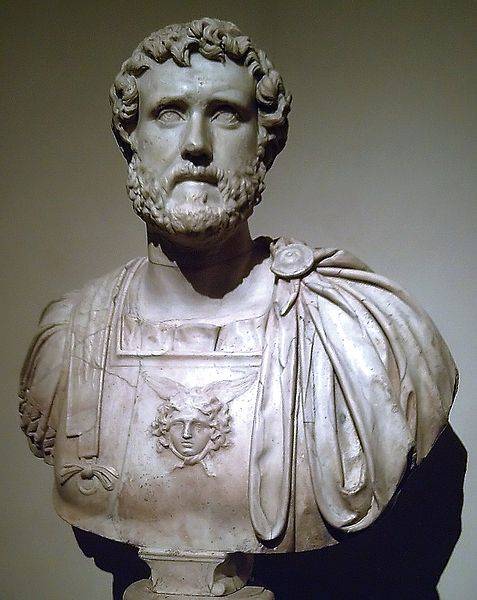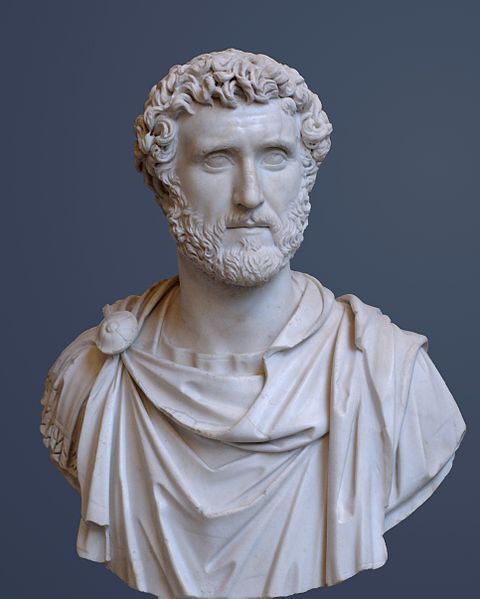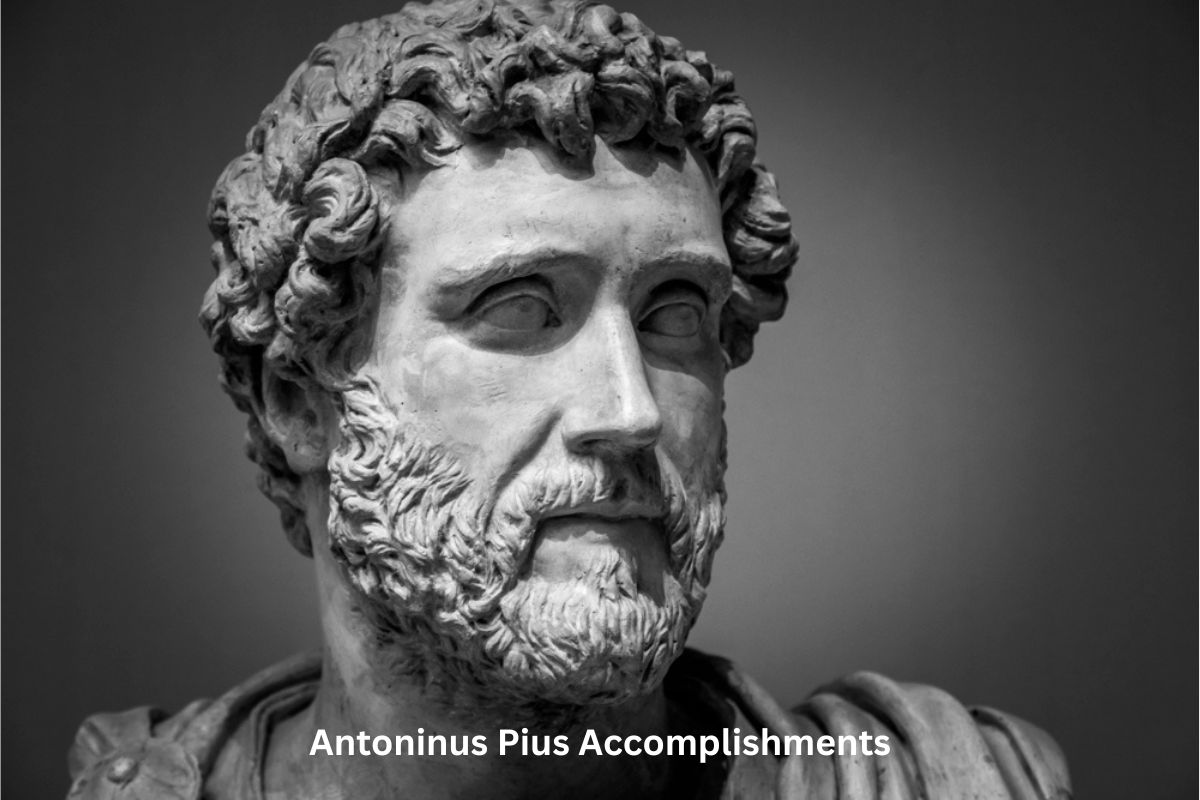Antoninus Pius, born in 86 AD, was a Roman Emperor who ruled from 138 to 161 AD. His reign is often characterized by its emphasis on peace, administrative reforms, philanthropy, and support for education and culture.
Antoninus Pius is considered one of the “Five Good Emperors” of Rome, known for his wise and effective leadership during a period of relative stability and prosperity in the Roman Empire.
His reign exemplified good governance. He died on March 7, 161 AD, succeeded by Marcus Aurelius.
Accomplishments of Antoninus Pius
1. Maintained peace and stability
Antoninus Pius is celebrated for his ability to keep the Roman Empire relatively peaceful and stable during his 23-year reign. He avoided unnecessary military conflicts and sought diplomatic solutions to potential disputes.
His commitment to peace allowed the empire to thrive economically and socially, as citizens were not burdened by the constant upheaval and suffering often associated with warfare.

2. Implemented administrative reforms
Antoninus Pius was a meticulous administrator who focused on improving the efficiency of the Roman government. He worked to simplify bureaucracy and reduce corruption within the administration.
His reforms helped ensure that the empire’s resources were allocated more effectively and that the government could respond to the needs of its citizens in a timely manner.
3. Sponsored infrastructure and public works
Antoninus Pius recognized the importance of infrastructure in maintaining a functioning empire. He allocated significant funds to repair and build roads, bridges, and aqueducts, which were crucial for transportation and the distribution of goods throughout the vast Roman territory.
His support for public works extended to the maintenance of public buildings, temples, and other essential structures, contributing to the overall well-being and development of the Roman cities and provinces.
These efforts not only improved the lives of Roman citizens but also demonstrated the emperor’s commitment to the prosperity of the empire as a whole.
4. Engaged in philanthropy
Antoninus Pius was known for his personal generosity and philanthropic efforts. He took a compassionate approach to governance, providing financial support to various groups in need, including orphans, impoverished citizens, and victims of natural disasters.
His philanthropic actions not only alleviated suffering but also contributed to the emperor’s favorable image among the Roman populace.
5. Passed progressive legislation
Antoninus Pius implemented several laws that aimed to protect the rights of marginalized groups and promote fairness within the Roman legal system.
Notably, he passed laws that improved the legal status of slaves, making it more difficult for them to be mistreated or subjected to extreme cruelty by their owners.
Additionally, he introduced legal reforms that benefited women, such as providing them with greater property rights and legal protections. These progressive measures were seen as important steps towards a more just and humane society within the Roman Empire.

6. Prioritized diplomacy over military aggression
Unlike some of his predecessors, Antoninus Pius preferred diplomatic solutions to conflicts rather than resorting to military aggression.
He understood the value of peaceful relations with neighboring states and focused on negotiation and diplomacy to maintain stability on Rome’s frontiers.
By avoiding costly and protracted wars, he not only conserved resources but also ensured the safety and prosperity of the Roman Empire’s borders.
This diplomatic approach contributed to the overall tranquility and well-being of the empire during his rule, earning him the reputation of a wise and judicious leader.
7. Supported education and learning
Antoninus Pius recognized the importance of education and culture for the well-being of the Roman Empire. He provided support to schools, philosophers, and scholars, fostering an environment of intellectual growth and learning.
One of the notable beneficiaries of his patronage was Galen, a renowned physician and philosopher whose contributions to medicine had a lasting impact.
8. Respected the Roman Senate
Unlike some emperors who viewed the Roman Senate with suspicion or disdain, Antoninus Pius had a harmonious relationship with this governing body. He respected the Senate’s authority and consulted with its members on important matters of state.
This approach helped maintain the stability and cohesion of the Roman government and fostered goodwill between the emperor and the Senate.
9. Ensured economic stability
Antoninus Pius managed the Roman economy effectively during his reign. He avoided excessive taxation and worked to prevent inflation, which could have harmed the financial well-being of Roman citizens.
This economic stability contributed to the prosperity of the empire, as citizens enjoyed relative financial security and confidence in the stability of the currency.
10. Planned for a smooth succession of power
Antoninus Pius took a strategic approach to ensuring a smooth transition of power, a critical aspect of Roman governance.
He adopted two individuals, Marcus Aurelius and Lucius Verus, as his sons and designated them as his successors. This choice helped prevent potential power struggles and ensured a peaceful transfer of authority after his death.
This foresight in succession planning contributed to the overall stability of the Roman Empire during this period, as there was a clear line of succession and minimal disruption in leadership. Marcus Aurelius, in particular, went on to become a highly regarded emperor in his own right.
